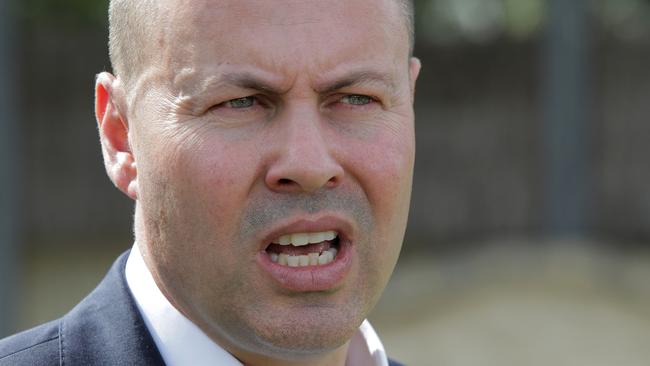
Josh Frydenberg is redrawing his fiscal rules for several reasons. First, the Treasurer said he would announce a new fiscal strategy ahead of the budget.
This was “not a time for austerity measures” he said two weeks ago.
Second, the recovery is so robust, especially in the labour market, it has taken most experts and government advisers by surprise. Previous guidance around budget repair — that Frydenberg would tighten up his fiscal game when the unemployment rate was “comfortably below 6 per cent” — has been rendered redundant by the tumble in the headline jobless figure, now 5.6 per cent.
Third, it’s the politics stupid. A year out, at most, from the next federal poll and the government wants an economy that’s raging, not one that’s in debt-recovery therapy. Plus, there’s no visible populist people’s front against deficits mobilising outside Parliament House.
It makes sense to adjust the narrative on the budget because the level of unemployment necessary to stoke wage pressure and inflation has moved a few notches lower due to a range of structural factors shaken out by the pandemic.
Both Treasury and the Reserve Bank now think the so-called “non-accelerating inflation rate of unemployment” is in the 4.5-5 per cent range, so it’s a prudent move, one any capital P “pragmatist” would make — and that’s Frydenberg’s middle name.
Remember, the more pressing task is to grow the economy, create jobs, generate profits and stimulate investment. Many people are doing it tough and wages have been moribund since … forever.
A bigger economy pulls in more revenue to pay our interest bill and reduce our billowing debt as a share of GDP over time. Easy money, big spending, a focus on jobs, capital expansion and asset-price inflation inform the road map for this budget and maybe the one Scott Morrison will try to use to carve out another term.




This is the season for recalibration, whether it be budgets or vaccines.